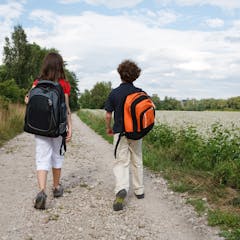
Articles on Remote communities
Displaying 21 - 37 of 37 articles

Drinking water in Australia can be contaminated by natural and manmade processes, especially in communities. Innovation is needed to ensure water is ‘fit for purpose, place and people’.

It’s the people most dependent on social services, who are least able to easily transition into the digital age.

In remote Northern Territory, most Aboriginal people have been buried in unmarked graves. Archaelogists are carrying out painstaking detective work to help communities find their loved ones’ remains.

A government review of regional, rural and remote education tells us we need to recognise the uniqueness of and understand successes in these communities to improve outcomes for these students.

Decent housing underpins the Closing the Gap goals, with a decade-long national remote housing program having made measurable progress. If the Commonwealth pulls out now, hard-won gains could be lost.

Some remote Australian communities have access to drinking water for only nine hours a day but can use ten times the average of urban households.

Much has been written about success of Indigenous players at elite levels of the game. But perhaps the more important story is one of Indigenous participation in grass roots and community football.

New research released today by the Grattan Institute shows that income growth and unemployment rates are not obviously worse in regional areas.

Mobile phones are often touted as technology that can help bring economic benefits to the poor. But the benefits to those living in rural and remote areas without other infrastructure are limited.

We’re used to debating the region’s environment. But far-western Brazil has lots of urban problems too.

As Australia joins a New York summit to discuss the UN Sustainable Development Goals, it still faces questions over whether it is meeting water standards at home.

The government assumes that with the right education and training, a young person will be able to get work. But this is not the case, especially for young people who live in rural and regional areas.

On average, all food is 53% more expensive in remote communities, with the price increasing annually by approximately 5%, compared to an annual rise of only about 1% in Darwin supermarkets.

The syphilis outbreak in Central Australia is not about child abuse. But it highlights the urgent need for investment in sexual health services for Aboriginal Australians living in remote areas.

The Outback covers 70% of Australia, and its water is precious and scarce. Yet there is no joined-up plan to monitor and manage Outback water, despite the wealth of species and communities that depend on it.

Up to 150 ‘communities’ in ‘remote’ Australia are threatened with closure. But do such terms put a gloss on what is, in reality, the closure of people’s homes?

Remote Indigenous communities aren’t just places to live - they are also crucial for supporting ranger programs and other projects that protect the environment in areas that might otherwise go untended.
